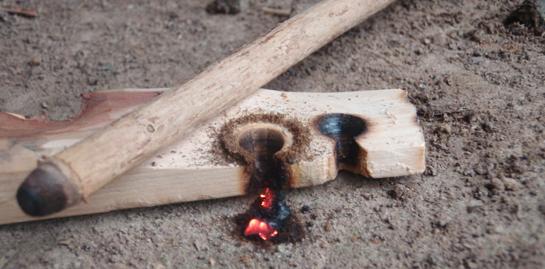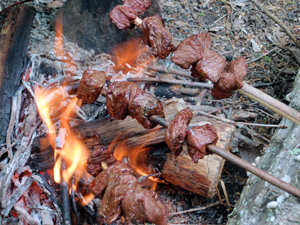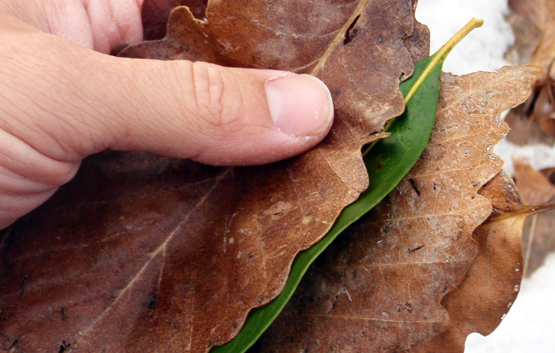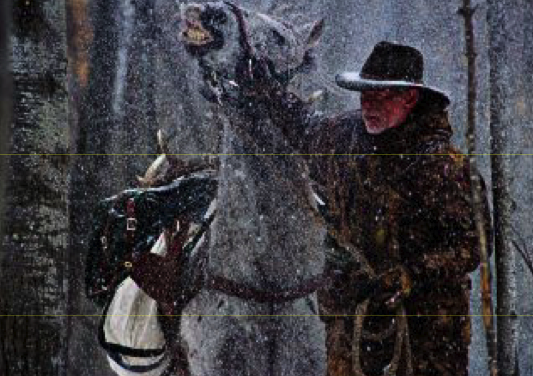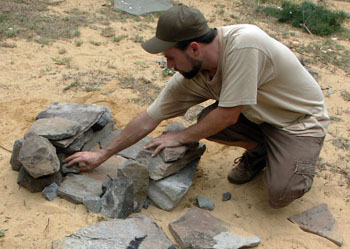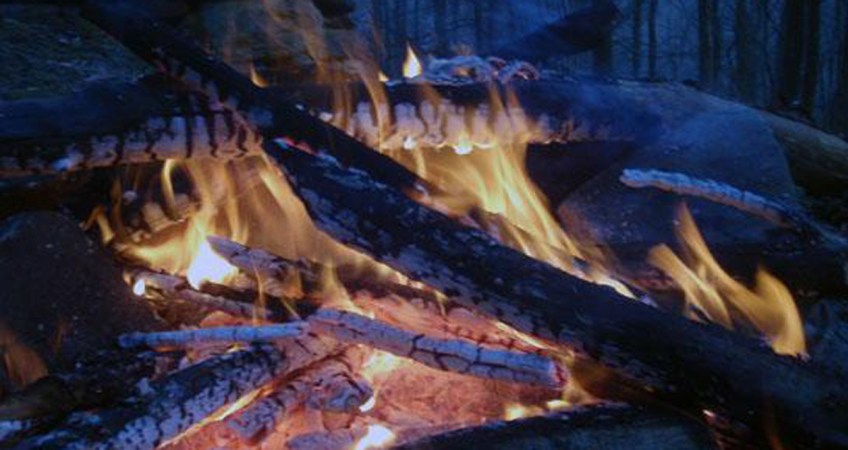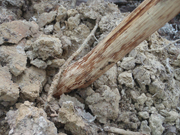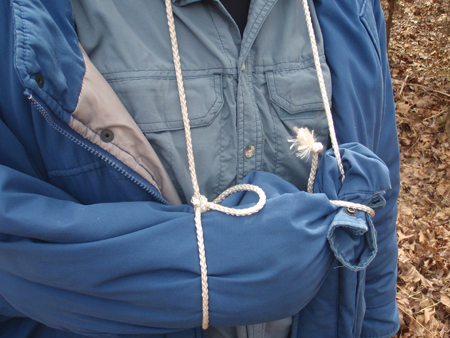The Hand Drill method of friction fire making is about as raw as it gets. You spin a wooden drill against a wood board with your bare hands. This method has had one of the widest distributions on earth, and it probably has been used for the longest span of time. Clearly, it’s one of the most difficult friction methods to use. But when properly demonstrated, hand drill fire building is a thing of beauty.
Should this be your go-to fire making method? Nope, this method is probably the single greatest reason why matches and lighters were invented. I don’t expect that 1% of the world’s population could pull this technique off. The Bow Drill is more likely to work for most people, and I guarantee that method will be more of a fight than it looks on TV. Remember, there’s always that quiet voice in the background saying “…your results may vary,” or something like that.
The Hand Drill Components
Drill: The drill is a straight piece of dead, dry plant stalk with its rough surfaces scraped or sanded away. Most hand drills are between one foot and two feet long and approximately 1/2 inch in diameter. The wider end is almost always used as the friction end spinning against the board. Mullein, yucca and fleabane horseweed are my three favorite weed stalks for this.
Fire board: The fire board is a flat or relatively flat board about 1/2 inch thick and at least twice as wide as the thickest drills that you intend to use. The board could be wider to accommodate a second row of holes. The board should be at least flat enough on the bottom to avoid wobbling, but the flatter that the board is, the easier it will be to use. Cedar, Weeping Willow and Basswood are my three favorites on this component.
Fire Kit Construction
Select a drill or several drills that are dead and dry. Sand or scrape away any rough spots or carve off branches. Round each end by sanding or carving and use the thicker end as the friction end against the fire board. If the drill is not naturally hollow or pith centered, a hole may be drilled up into the end of the drill to increase efficiency.
Select a dead, dry branch or piece of wood to be the fire board. Carve it flat enough on the bottom to avoid wobbling when in use, and to create a flat surface on the top in which to drill holes. Make a pilot hole or series of holes about 1/8 inch deep, and 1/2 inch in from the edge of the board. With a foot or knee on the board, spin the drill with your hands in the pilot hole with enough pressure to grind a deeper hole into the board. Once a hole has been burned in, carve a 45 degree angle notch in the edge of the board. This notch size and shape are the most common, although other shapes and sizes will work.
**
How To Use The Hand Drill Equipment**
Set up the hand drill for a sitting or kneeling position, with a foot or knee holding down the board. It is best to have a dry piece of bark, dead leaves or some other dead, dry material under the fire board to protect it from the damp ground. A small chip of wood, bone or a thick dry leaf should be placed under the notch to collect the coal. Spit on your hands, or rub dried up pine pitch on the drill for grip before starting to drill.
Start at the top of the drill with hands pressed tightly together. Spin the drill quickly while pushing the drill down into the fire board. This pushing down and spinning produces heat and dust for coal, but it also makes the hands gravitate down the drill. When you reach the bottom of the drill, hold it firmly in the hole with one hand and quickly move back to the top of the drill. The faster you can start spinning again, the less heat will be lost from the fire board and drill.
Drill like this until there is smoke, the notch is full of dust and still spewing out dust that is dark brown. Once the notch is full of dust, increase your drilling speed and make several runs down the drill to ignite this dust. Once the drilling stops, and the dust in the notch is still smoking after several seconds, a coal has formed. If the dust stops smoking, then continue drilling at high speed to ignite the dust.
When the dust is glowing or still smoking on its own for several seconds, tap the board and lift it away carefully to expose the coal. Place the coal in a good nest of tinder, and close up the bundle. Blow gently to help the coal grow and burst into flames.
Let us know in the comments if you’ve tried Hand Drill fire making, or if you have any questions.
Best of luck to you! You’re gonna need it.
